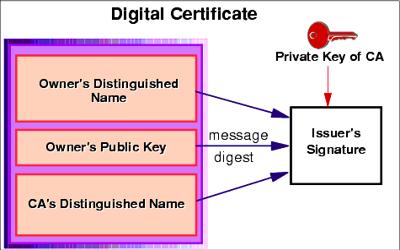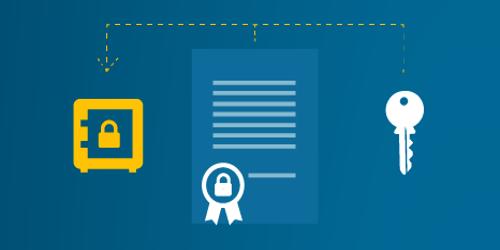Digital certificate: A digital certificate is an electronic “passport” that allows a person, computer or organization to exchange information securely over the Internet using the public key infrastructure (PKI). It is also known as a public key certificate or identity certificate. A digital certificate may also be referred to as a public key certificate.
Importance of Digital certificate: Just like a passport, a digital certificate provides identifying information is forgery resistant and can be verified because it was issued by an official, trusted agency. The certificate contains the name of the certificate holder, a serial number, expiration dates, a copy of the certificate holder’s public key (used for encrypting messages and digital signatures) and the digital signature of the certificate-issuing authority (CA) so that a recipient can verify that the certificate is real. The most common use of a digital certificate is to verify that a user sending a message is who he or she claims to be and to provide the receiver with the means to encode a reply.

To provide evidence that a certificate is genuine and valid, it is digitally signed by a root certificate belonging to a trusted certificate authority. Operating systems and browsers maintain lists of trusted CA root certificates so they can easily verify certificates that the CAs have-issued and signed. When PKI is deployed internally, a digital certificate can be self-signed.
















